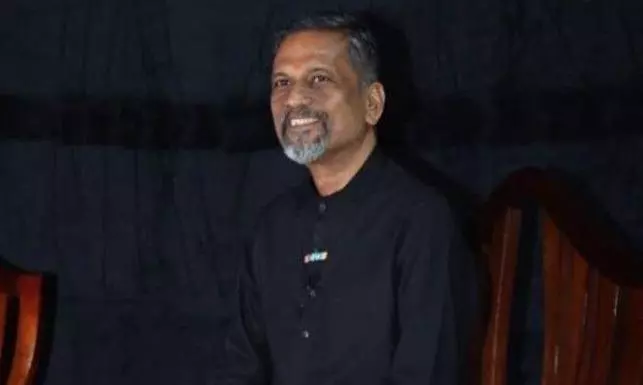
'Trust me, bro': Arattai privacy query triggers Vembu vs critics row
While critics of the WhatsApp rival point out lack of end-to-end encryption, Zoho supporters ask why no one fusses about how Google and Meta handle data

‘Trust me, bro’ has become a viral one-liner on social media platforms over the past two days. Tech experts and popular X accounts have used ‘Trust me bro’ to criticise the security features of the newly launched Arattai messenger app from Zoho.
Arattai, launched in January 2021, has shot into fame in recent weeks as a ‘replacement for WhatsApp’ among Indians. It offers features similar to WhatsApp, owned by Mark Zuckerberg's Meta, including sending and receiving messages, documents, and photographs, enabling video and audio calls.
Users have noted that video calls are end-to-end encrypted in Arattai, while the same feature is missing for sending and receiving messages.
Also read |Made-in-India messaging app 'Arattai' tops app store charts, overtakes WhatsApp
Privacy fears
This has sparked some scepticism online, with tech experts and casual users alike raising queries over the app's privacy features. To make things even more interesting, Zoho co-founder Sridhar Vembu recently jumped into a conversation with an X user who was concerned about the safety of sharing intimate photos on the app.
A user on X named Ravi asked a question in response to a post where Vembu addressed three different privacy scenarios. Vembu referred to one of the three cases as 'the secret lover case,' claiming that secret lovers could use Zoho’s app without privacy concerns.
“Forget secret lovers. Can a husband and wife exchange intimate pictures between them? Who all at Zoho has access to these pictures? Straightforward answer, please,” Ravi asked.
Rather talk about the encryption technology, Vembu said that Arattai’s business is based on the trust that his company does not access customer data.
'Far more precious'
Vembu insisted that Zoho would never disclose the data. End-to-end encryption would be enabled soon, he added. But every line in the response carried the word ‘trust’ and he concluded, “Trust is far more precious, and we are earning that trust daily in the global market. We will continue to fulfill that trust of every user of our product everywhere.”
The way he emphasised on ‘trust’ turned ‘Trust me, bro’ into a meme sensation, sparking further questions about Arattai’s security.
“I asked the Zoho founder how private the pictures shared between a husband and wife are when using the Arattai chat app. His response: "Trust me, bro!",” Ravi posted on X.
“Arratai is an absolutely secure platform. It has a “Trust me Bro” encryption,” another user noted.
“We do not HAVE the ACCESS and We do not access are not same. ZOHO is just 'Trust Me Bro' thing,” another user noted.
“Someone asked Zoho’s founder if Zoho has access to the pictures people share on the platform? He didn’t deny, He just said Trust me, bro. Those who installed it are cooked,” another user shared his thought on platform X.
Also read | Arattai gets flak for Tamil name; check out titles of 5 other global apps
Counter argument
However, people have also come out in support of Vembu and Arattai. They asked why the app's critics never made a fuss about how American tech giants like Meta (Facebook) and Google handle data. WhatsApp, until recently, did not have end-to-end encryption, they pointed out.
Yet, Arattai's critics were undeterred. They pointed to what they said are weak security measures. Since the app has been around for nearly five years now, the encryption should be in place already, they said.
Arattai, meaning chatter in Tamil, was a lesser-known messenger app before experiencing a surge of popularity over the past couple of weeks. Union Minister Dharmendra Pradhan tweeted, urging people to use Arattai, as part of the government's repeated pushes for self-reliance.
“Guided by PM Narendra Modi’s call to adopt Swadeshi, I appeal to everyone to switch to India-made apps for staying connected with friends and family,” Pradhan posted.
Since then, the number of downloads has skyrocketed, boosting its popularity among users.

